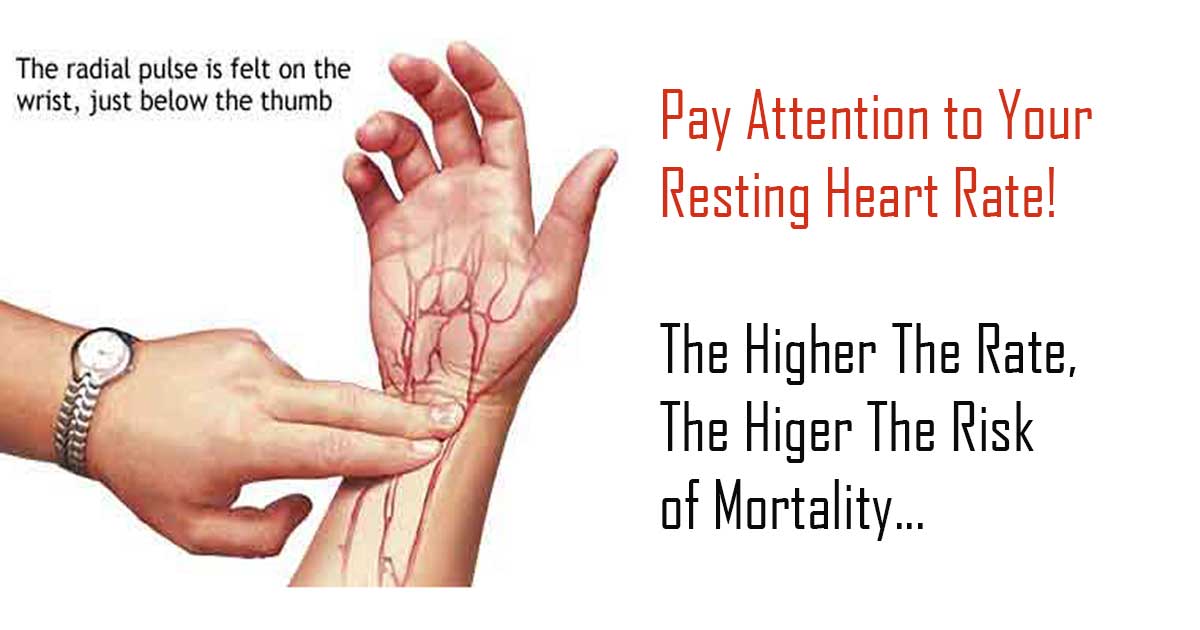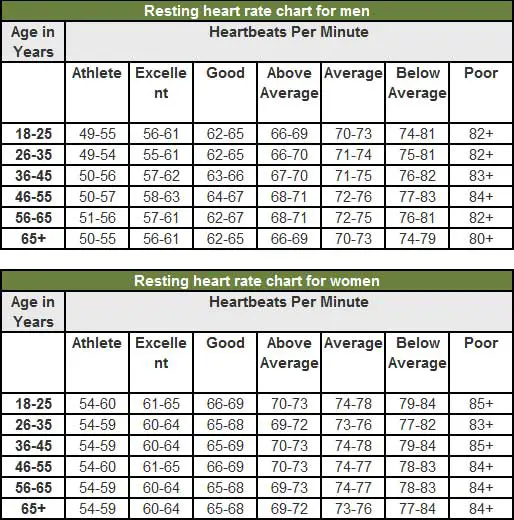Resting heart rate is the number of heartbeats a person has while at rest and not performing any physical activity. A resting heart rate between 60 to 100 heartbeats per minutes is considered normal. When there is a lower heart rate, the heart, and the cardiovascular system function more efficiently.
Athletes usually have a resting heart rate below 60bpm and it is not abnormal to have a resting heart rate below 60.
Fortunately, you can improve your resting heart rate and thus improve your overall heart function.
Further on in the text, you will find a list of normal ranges of resting heart rate depending on age, the contributing factors for higher resting rate and the ways you can improve it.
High Resting Rate Is Related to a Higher Risk of Death Even in Healthy People: Study
According to some research findings, high resting heart rate is related to higher risk of death even in physically fit and healthy people. These findings were based on the health of nearly 3,000 men in a period of 16 years.
At the beginning of the research, a doctor evaluated the health and lifestyle of all the participants. They also assessed the cardiorespiratory fitness by a cycling test.
After 15 years, some of the participants were subjected to some additional check-up. About 16 years later, the researchers checked the number of people who were still alive. By then, about 4 of 10 of the participants have died.
High resting heart rate is linked to high blood pressure, lower physical fitness, obesity and a higher level of circulating fats.
So, the study found out that the higher this resting heart rate, the higher the risk of mortality. So, regardless of the level of physical activity, people with high resting heart rates have a higher risk factor than people with lower resting heart rates.
Resting Heart Rate Chart
Here are healthy ranges of resting heart rate depending on age.
Factors That Can Influence Resting Heart Rate
Some factors can significantly contribute to lower or higher heart rate such as fitness and activity level, body position, air temperature, stress, and emotions level, medications, body size, illness, food, and drink.
To measure your resting heart rate accurately, you should be at complete rest. When measured during some activity, the resting heart rate will be higher and you may think that your heart is at risk.
How to Measure the Resting Heart Rate?
First of all, make sure you are comfortable and relaxed. So, sit or lie motionless for 5 to 10 minutes. Then, with your index and middle fingers locate your pulse on the inside of your wrist. This is the point where the radial artery is found.
For 10 seconds, count the beats you feel. Make sure your repeat this test 2-3 times to find your average number. Then multiply that particular number by six. (E.g. 10×6=60)
Tips for Healthier Resting Heart Rate
You can improve your resting heart rate in the following way:
- Exercise regularly
- Reduce the level of stress
- Quit smoking
- Keep a healthy weight
- Reduce the intake of caffeine
- Get good quality of sleep
By maintaining a lower resting heart rate, you will reduce the risk of some heart-related diseases and improve its function.
Source Bel Marra Health | Health Harvard


